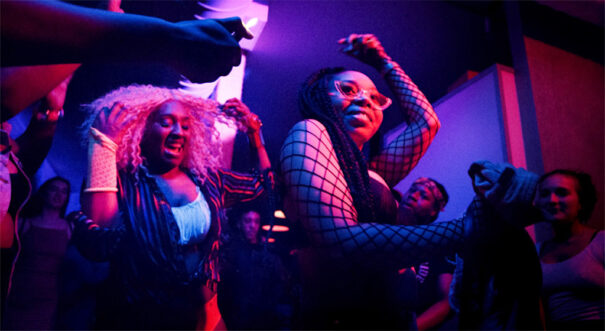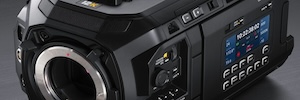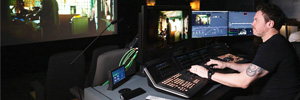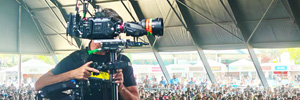100% post-production of ‘Bad Like Brooklyn Dancehall’ completed with DaVinci Resolve
Ben DiGiacomo, director of the Tribeca-premiered documentary ‘Bad Like Brooklyn Dancehall’, chose to use Blackmagic Design’s DaVinci Resolve Studio for the entire post-production phase of the feature film.
Bad Like Brooklyn Dancehall celebrates the Jamaican dancehall vibe that resonated in the 80s and 90s in Brooklyn and how the impact of the music and culture continues to influence today’s younger generations. Grammy Award-winning singer-songwriter Shaggy executive produced the documentary, which featured several well-known artists, including Sean Paul and Ding Dong.
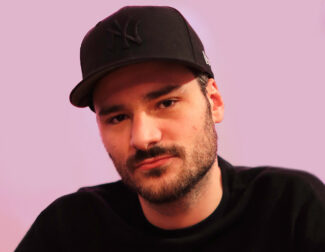 DiGiacomo notes the artistic and visual care and consistency of the entire piece, which could not have been achieved without being able to use DaVinci Resolve “as an end to end post solution from the beginning was a luxury for us, as we were able to have access to our entire film at any moment and constantly evolve all elements of the project artistically.”
DiGiacomo notes the artistic and visual care and consistency of the entire piece, which could not have been achieved without being able to use DaVinci Resolve “as an end to end post solution from the beginning was a luxury for us, as we were able to have access to our entire film at any moment and constantly evolve all elements of the project artistically.”
In addition to directing the documentary, the filmmaker was in charge of editing, color and visual effects. From his privileged knowledge of the project, he says: “After processing dailies, I made all my selects while the shoot was still fresh in my memory. I based my editing decisions on color, and I needed a quick way to match exposure and white balance while making selects, especially for the documentary’s uncontrolled environments. Having all those balanced selects ready to go allowed me to stay focused on editing without being visually distracted.”
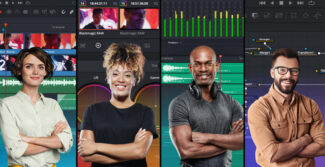 Key DaVinci tools in Bad Like Brooklyn Dancehall
Key DaVinci tools in Bad Like Brooklyn Dancehall
DiGiacomo highlights key solutions such as Resolve’s montage module, which “was very helpful when making selects. Sometimes we really focus on a single clip and having a clean UI gives that feeling of special attention. I also don’t think I could log without the source tape viewer anymore. It’s very simple but immediately gives you a good sense of all the material you’re working with.”
For Bad Like Brooklyn Dancehall, the director also made frequent use of the grouping feature in DaVinci Resolve Studio and caching: “Node groups, clip filters and shared nodes are a huge help in the editing process for feature length projects. I always create tons of smart filters that allow me to watch it down in different contexts, for example watching all the archival clips back to back. It’s a great way to have a bird’s eye view of the project. I also love how the render cache pipeline works, since I oftentimes move back and forth between the pages while editing.”
DiGiacomo’s other favorite tools are the adjustment clips, which “really speeds up the editing process while trying different things out like reframing, effects, looks, dynamic zooms or all of that combined.”
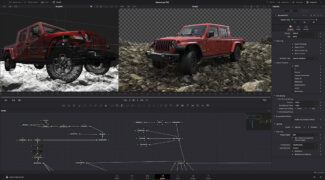 Visual effects and sound in DaVinci Resolve
Visual effects and sound in DaVinci Resolve
Although Ben turns to DaVinci Resolve Studio’s Fusion module for his commercial projects, he has delved much deeper into the use of effects for Bad Like Brooklyn Dancehall: “Our entire intro credit sequence was built in Fusion using a large amount of Resolve FX, such as lens distortion, lens blur, lens reflections, color compressor, watercolor, and film grain.”
“I also used character level styling to build all the title animations in Fusion, but on separate clips. When I originally built the template, I pushed some of the Fusion node parameters, like text and position, through with user controls, so I was able to change the names and positions from the edit page directly, which is quite efficient when constantly moving and editing dozens of titles. Like DaVinci Resolve, Fusion’s power comes from taking a comprehensive approach, just with compositing, 3D and motion graphics; it really brings them together,” he adds.
Because of his background in music, sound is extremely important to DiGiacomo, who also took advantage of the Fairlight module built into DaVinci Resolve: “I put a lot of work into sound while editing so having a dedicated Fairlight audio page in Resolve with filmmakers in mind is a big asset. Sound needs special attention, and it’s hard to achieve this level of finesse with any other NLE.” Color was also addressed with the Blackmagic Design tool: “Documentaries can be challenging to grade due to the uncontrolled environments. Exposure and temperature will shift, and DaVinci Resolve’s color stabilizer and color warper helped fix these issues without needing complex keyframing.”
“I’m quite picky about how I want things to feel and look. Even deep into color I might want to tweak a cut or a lower third, or a cold sound effect might influence how warm I’d like to push the look of a shot, and vice versa. I like all these decisions to be evolving together to create the perfect emotion, and DaVinci Resolve gave me that flexibility for Bad Like Brooklyn Dancehall,” concludes the director.
Hat Ihnen dieser Artikel gefallen?
Abonnieren Sie unsere Füttern Und es wird Ihnen an nichts fehlen.



